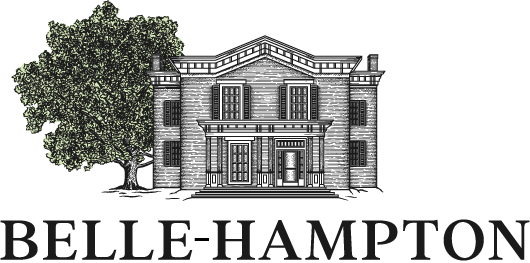The Spirit of Entrepreneurship: Nurture vs Nature
Entrepreneurship is defined in the Oxford dictionary as “the activity of setting up a business or businesses, taking on financial risks in the hope of profit.” Other Google searches led to the Wikipedia definition as “entrepreneurship is viewed as change, which may include other values than simply economic ones.” George Washington was described as the first entrepreneur in Virginia with his revolutionary farming operation viewed as a business. But it was Benjamin Franklin who is ultimately considered the first in American entrepreneur described as “a very savvy businessman who knew how to commercialize the fruits of his fertile mind.” Another great would be P. T. Barnum with “The Greatest Show on Earth,” which is a favorite story of mine. He changed modern advertising. This repeated theme of change intrigued me. Most people resist change, but it seems to be the nature of the entrepreneurial spirit to embraces it.
My husband, Tom, according to the DISC/Devine test is considered a “Changer.” Defined as not being afraid of doing anything, taking risks and making difficult decisions. He believes in the quote “ Big things, Great things.” Although he runs his own company, he didn’t create it from the beginning. He has, however, started other businesses like Back Creek Wagyu without knowing anything about farming or e-commerce. He spent his life nurturing a spirit of change which determined my question, “Is it Nurture or Nature that results in the entrepreneurship spirit?” I decided to investigate this family’s ancestors to find out.
As I researched the Hoge/Howe family history and the descendants of James Mayo Hoge who endured the frontier to create a life for his family, I uncovered some interesting entrepreneur tales. Isabella Howe, one of the descendants, married Dr. Charles Pepper and had a son named Lewis. Reading Lewis’s story about his eclectic interests, I was intrigued about his special recipe for a beverage. Although he was an optometrists, he served his invented concoction at his dad’s local drug store in Rural Retreat, VA. An employee asked for the delicious recipe before moving west to Texas. Charles Alderton, the former employee and young pharmacist, decided this popular drink should be monetized. Naming it after his friend, Lewis, didn’t have a ring to it, but Dr. Pepper gave the drink a stigma of having health benefits. So the oldest soft drink in America was born. Even though the Pepper’s didn’t benefit financially from the creation, their name lives on in the tale of being the inventor.
A descendant through Joseph Haven Hoge, Senah Anne Hoge, married Major Abram David Reynolds, a successful tobacco farmer. It was his brother, however, who started the famed R. J. Reynolds Tobacco Company (Richard Joshua Reynolds). Their son, Richard, who grew up working for his uncle, decided to create a company of his own. In 1912 he left the secure job with the family business at the height of his success being credited for starting new product lines such as Prince Albert and Camel cigarettes. His venture into soap almost drove him into bankruptcy after enduring a fire at his plant then struggling through the WWI years. Not to be deterred, in 1919 he started U. S. Foil, more widely known now as Reynolds Wrap. This venture initially started as a supplier to the tobacco company which lined their cigarette packages with foil. But through the industrious mind of Richard, he developed a cost effective way to produce the foil driving down the price. With his four sons, the company continued to prosper and diversified into other areas such as Reynolds and Company Securities which eventually merged with Dean Whitter. It was his constant focus on development and change that created his success for generations, separate from his uncle’s empire.
Another intriguing story was discovered after casually reading a letter Eleanor Howe Hoge wrote to her niece. Dated 1855 from her home at Hayfield Farm (now called Belle-Hampton), Eleanor mentioned her son Joseph purchasing some land at White Sulphur Springs to build a hotel. She goes further to mention that hundreds of people already visit that area and with the railroad now close by, Central Station in Radford 1854, it surely will be a success. It is also curious that General Hoge that same year has a notation in his ledger for giving his son $5,000. I always wondered what that was for since it seemed to be a significant amount of money in 1855. After some further research, I stumbled on the history of Greenbrier at White Sulphur Springs which states that the initial hotel called The Grand Central Hotel, also known as “Old White,” was opened in 1858 by a group of wealthy Virginia businessmen. Coincidental, not likely since the Hoge family along with the Howe’s have a long history of being entrepreneurs.
Which brings me to the conclusion to the question, “Does the entrepreneur spirit get passed down in the DNA?” This theory looks to be true for the Hoge/Howe family on the surface, but I would argue it has more to do with communicating the family’s values to future generations. During our family council meetings, we wrote down our vision, mission and core values then discussed how we model those characteristics. The objective is to document the current stories to be an example for the Next Gen. But it was uncovering our history that gave us strength and reassurance to forge ahead. Discovering these stories of successful ancestors who persevered through failure along the way, inspires us as descendants to do “Big things, Great things.” How have you conveyed your family business history?

